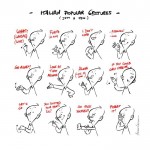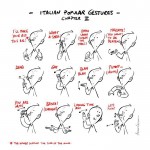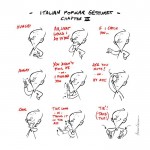One of the most intriguing concepts in linguistics is the so-called Sapir-Whorf hypothesis, or linguistic relativity principle. Simply put, it states that the language we speak can influence the way we think. Another common name for this theory is linguistic determinism. There are some subtleties in the usage of these different names (no pun intended), but in order to avoid confusing them and giving wrong information, I’ll refrain from attempting. There are many resources online about the details of this topic for those who wish to delve deeper. For the sake of this post, I will freely use the terms interchangeably.
Anybody who studied a foreign language, even without reaching fluency, has most likely had an experience with the linguistic relativity principle. The farther the language in question is different from the native language, the more the phenomenon is obvious.
Continue reading “Languages: linguistic relativity, words vs. thought”


